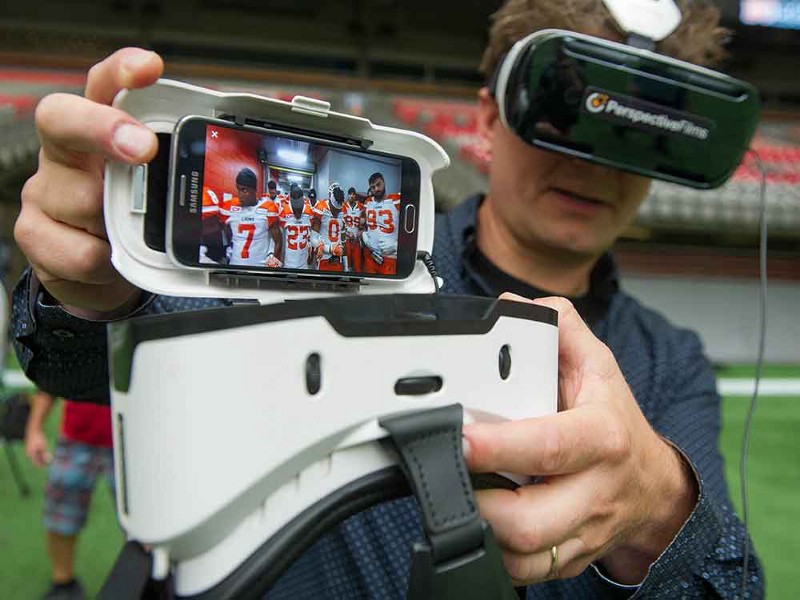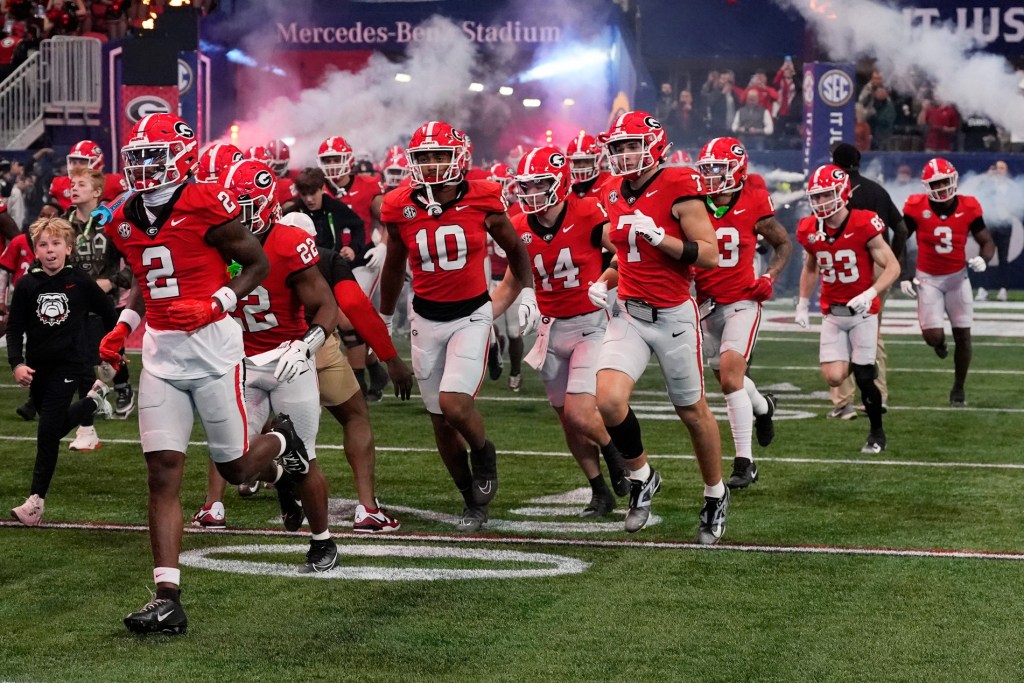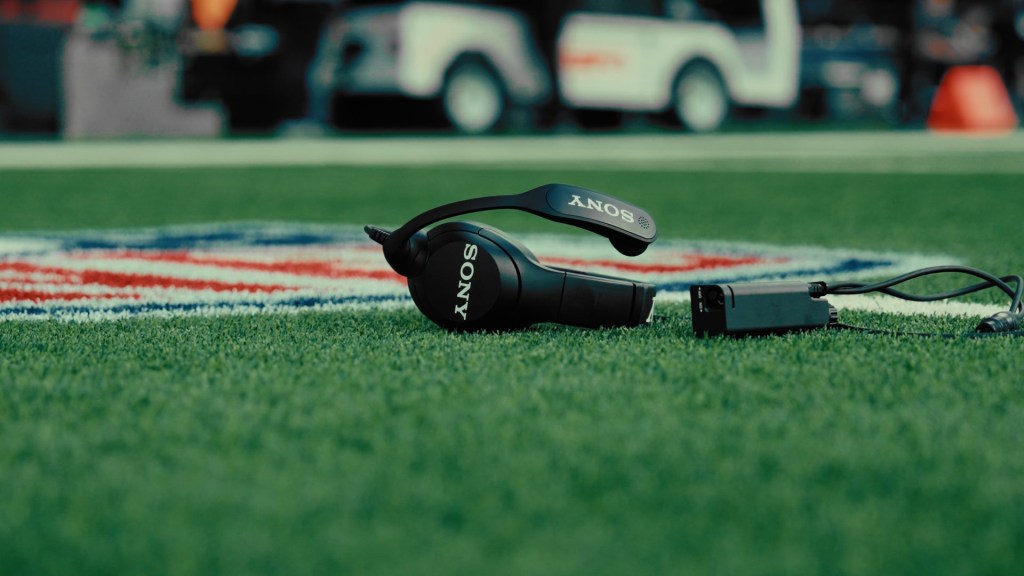The team is showing it’s no alternate reality.
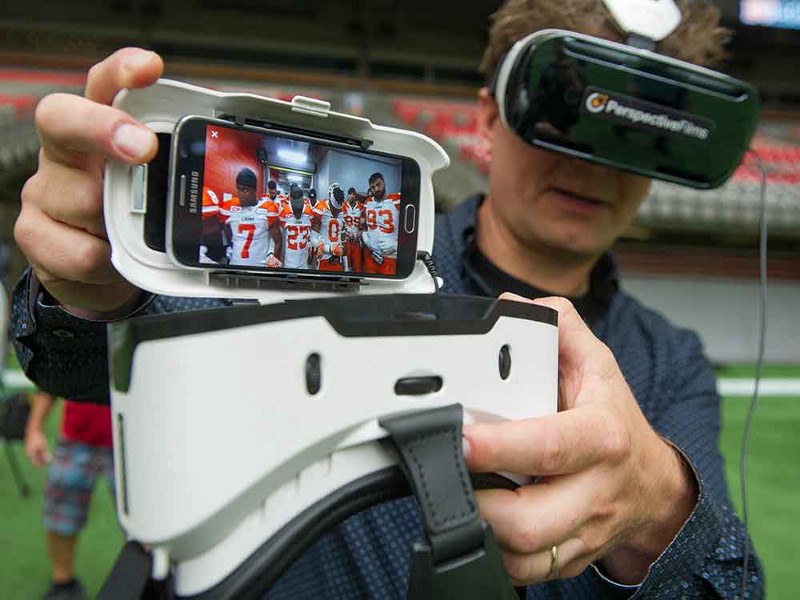
Using technology to engage and grow a team’s fan base is nothing new. Things have come a long way from simply sending the mascot into the stands or around town. Today, the mascot might be right there interacting with you in an augmented reality environment.
Blimps dropping coupons have long been a stadium and arena staple. Today, the blimp might show up in your app and be your ticket to winning a prize.
All that and more is part of the next wave of fan engagement that the BC Lions (@BCLions) of the Canadian Football League and their various technology partners rolled out to fans in the Pacific Northwest this fall.
They are seeking to take advantage of some of the newest technology in a region of the continent that is fast growing into a technology hub itself. With that technology, a team’s creativity can be even more of a competitive advantage.
ABOUT THE PRODUCT
The BC Lions, based in Vancouver, British Columbia, have long been a staple of the Canadian Football League as a member club since 1954. They’ve also been a fixture in the playoffs having qualified each of the last 20 years — the second longest streak in the history of the league.
This fall, the team added a new approach to interacting with fans to their portfolio — the BC Lions EXP App.
The team app was built with three key stakeholders to facilitate 360º virtual reality video and augmented reality functionality.
Using the new app, the sky appears to be the limit for what the team can do…literally.
You can actually use the app to watch a drone fly to deliver prizes.
https://twitter.com/BCLions/status/910269204267286528
Sending a team spirit squad into the stands to identify fans for a special stadium experience is so 20th century, so why not find them by app and share with everyone?
https://twitter.com/BCLions/status/912719191014219777
Want some team swag? Find the augmented reality team blimp through your app and post a photo on social media to collect and win.
https://twitter.com/BCLions/status/909879799623016448
These are all just some of the examples of the creative, new ways the BC Lions can engage with their fans due to a partnership with Canadian telecommunications company Telus, Perspective Films for 360º virtual reality video, Quest Upon for augmented reality, and Radical I/O for app development and hosting.
Virtual reality takes off as the club has the ability to capture video from any team experience and post it in a 360º virtual reality video within 20 minutes according to a report by Kate McKenna on Canadian sports network, TSN.
The company, Perspective Films, took four years to develop a special camera to capture video intended for viewing through your mobile device.
Upon watching any uploaded video shortly after it happens, you’re presented with the choice of pairing a Google Cardboard add-on or simply watching it directly from the device.
Then, you can move and look around to your heart’s content as the Lions take the field, break it down in the locker room, or celebrate a touchdown in the end zone.
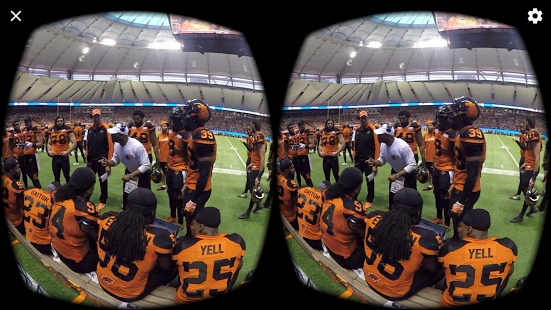
Radical I/O developed the app, and in speaking with their Head of Business Development, Trevor Westerlund (@T_Westerlund_), we were able to learn more about how the app initially came to be.
“Our production partner Perspective Films came to us with some pain points related to submitting content to some of the eco-systems (example: Samsung, Facebook, YouTube). Looking at how these groups presented content, it didn’t work for enterprise companies or for sponsors. It was like handing expensive content away for free. Creating interaction with the users was crucial for their clients, as was being able to control how content was used, viewed and sponsored. It seemed like a great fit. Beyond sports this product works for a whole host of verticals from education and training to tourism — really anywhere standard video and storytelling were being used as a medium.”
Storytelling has been a key to social media the last few years from Snapchat to Instagram stories, and the ability to use the platform to share with followers continues that trend.
From ideation to release, the team and its partners were able to move very fast as well to take the new app concept to the fans according to Westerlund:
“We have created a brand enabled framework that promotes quick turn around to the app stores. The apps take on the look and feel of the client’s brand, so we need their input definitely. The Lions were awesome in this regard, we worked as a collaborative team to get the app where we all wanted it to be. This quick turn around allowed for more time to be spent on marketing, sponsor support, and launch planning.”
The Lions and their partners seem to be happy with early reviews a month in as well:
“The numbers have been great. We have plans for new content, and the club is very happy with the results — BC Lions marketing has been really helping to boost numbers before/during/after games. The players have been amazing to work with — seriously these guys are the best, super excited about the concept, open to the cameras, they are just really nice, fun guys and that comes through on camera.”

USES OF 360-DEGREE VIRTUAL REALITY AND AUGMENTED REALITY
Perhaps you’ve traveled to a theme park, like Epcot Center at Walt Disney World, where 360º virtual reality video has been in use for some of their feature attractions like O Canada! and Impressions de France. There, you stand against a railing and watch video on screens all around you to immerse yourself in the experience of the countries.
There have been stories about various football teams and other sports organizations using the power of 360º virtual reality simulators for a few years now.
A company that incubated at Stanford University, STRIVR, has worked with a handful of NFL clubs on the concept of using 360º virtual reality to help players take extra reps of practice and better master the playbook.
Those all come with expensive equipment, projectors, or a small venue to enjoy the experience.
The concept of using this technology to enhance the fan experience in such an economical way is something new, and the BC Lions have been busy generating content on and off the playing field to enhance their brand — and those of some of their players — as noted by Radical I/O’s Westerlund:
“The idea behind VR360 is to have that immersive experience, to transport someone to another location. This means all aspects of the in-stadium experience is in play. It doesn’t only allow the user to experience what its like on the sidelines, in the locker room, the moments before hitting the field — but it can take out some of the guess work on buying an expensive ticket and maybe traveling far to a game — where you will be sitting? What is it like on the concourse? In a tailgate? Up in a corporate box? It drives fans to want to have these experiences in real life.”
From a football tailgate on a boat (as is common in the Pacific Northwest) called a “Sailgate,” an experience of players interacting with fans is shared and can increase awareness and interest in participating in real-life the next time around.
On the field, the BC Lions used the app to share the full gameday experience with fans start to finish:
https://twitter.com/BCLions/status/909237821071810560
When it comes to augmented reality, the ability to be a part of the action sees barriers transcended.
Take for example, recent uses of the app to award prizes to fans across British Columbia’s South Coast:
@BCLions why is the blimp in my car? #BCLionsEXP pic.twitter.com/borfHgNmII
— Ben Hong (@HongerB) September 17, 2017
The British network, BBC, recently asked the question of whether the same technology that took the world by storm in the Pokemon Go app is a part of the future of the sports world.
Sports Illustrated recently embedded augmented reality technology into their College Football Preview magazine covers to make the excitement of the season jump off the page:
https://imgur.com/a/bx7RE#0LW2T2Q
According to a report by Business Insider last year, total revenue for virtual reality and augmented reality is projected to increase from $5.2 billion in 2016 to over $162 billion in 2020 — just one election cycle in the United States.
Augmented reality also continues a trend in gaming that runs from esports to even software methodology gamification as seen in the Agile Scrum development process through development points awarded to product features.
The trade publication notes, “While early adopters will drive the initial wave of purchasing, sustainable growth will likely come from VR and AR app developers building a robust and engaging ecosystem of content that entices slower adopters.”
As with anything, content is always king.
“While VR technology is largely associated with the gaming industry, the platform offers a new set of content opportunities in entertainment, advertising, and more.”
Therein lies the opportunity for the sports industry. So far, fans in BC like where things are going according to Westerlund:
“(Reviews are) very positive. I know everyone will say that but, I had put out the Lions’ first app with a different company and had pretty good reviews and success. This idea of small, quick, almost behind the scenes content in a new format seems to resonate with the fans and sponsors. Pretty happy about that.”

VANCOUVER AND TECHNOLOGY
It shouldn’t be a surprise that a pro franchise based out of Vancouver is helping to pioneer this kind of functionality in an app.
While many have long been aware of the prowess of the Seattle area in the tech industry, Vancouver has been growing the Pacific Northwest into a destination in its own right in recent years.
All three of the technology partners involved in the BC Lions app are based in town with developer, Radical I/O, physically across the street from the Lions’ stadium, BC Place.
Vancouver has become a go-to location for film and television in the last decade, but now it is also gaining momentum on the technology front.
As reported in the Huffington Post, the city boasts a rich pool of talent in the field thanks to educational institutions in the area as noted by the Vancouver Economic Commission — with three of the top five tech school in Canada in the area.
Radical I/O’s Westerlund shared his experience of the competitive advantage in Vancouver:
“Yes we are a bit of a mecca; I can throw a dart out the window and hit a company working in the space. But the great thing is (at the moment) we all have different focuses, so we don’t really overlap, this leads to some great partnerships that help us to build bigger and better experiences for everyone.”
We like to call everyone in the space here friends and not competition — how rare is that?
WHAT’S NEXT?
So, where else can the technology go? I mean, the app has only been out there about a month, so let’s not get impatient for a minute and think what’s possible.
According to Westerlund, the app itself is a living platform, stating, “We want to make sure we have something engaging for the clubs, fans and sponsors. Keeping it fresh is the best way to retain those super fans.”
As far as where it can go from here?
“We are just at the beginning. Having a media aggregator that is headset ready allows us to tap into historical content of any team, while providing the ability to deploy those immersive experiences. Since this new medium is in its infancy still, clubs have a chance to always be remembered as the group that introduced a new technology to their fans — it’s feels like when the iPhone came out and teams started getting into apps, to introduce a fan to the new big thing was huge. By next year it will be common place and anyone without some sort of presence in the space might be deemed behind the times — like it did with the app craze. Remember those sports teams that deployed terrible PDF versions of their Programs and called them apps? Yipes, what a let down.”
With the cost effective solution to take on a costlier technology, the various technology partners behind the BC Lions solution are hoping to grow to include other sports organizations in the near future starting with eyes to the south in Seattle.
Jumping on the latest technology can often just be a gimmick to create buzz or partake in the most recent fad, but with the virtual reality and augmented reality platforms expected to grow substantially in the next several years, the technology is at an early adopter stage.
With content as king and a scalable tech platform to help contain costs, the latest in technology might not be as much of a pipe dream for sports organizations out there as they might initially think.
This piece has been presented to you by SMU’s Master of Science in Sport Management.
Front Office Sports is a leading multi-platform publication and industry resource that covers the intersection of business and sports.
Want to learn more, or have a story featured about you or your organization? Contact us today.
